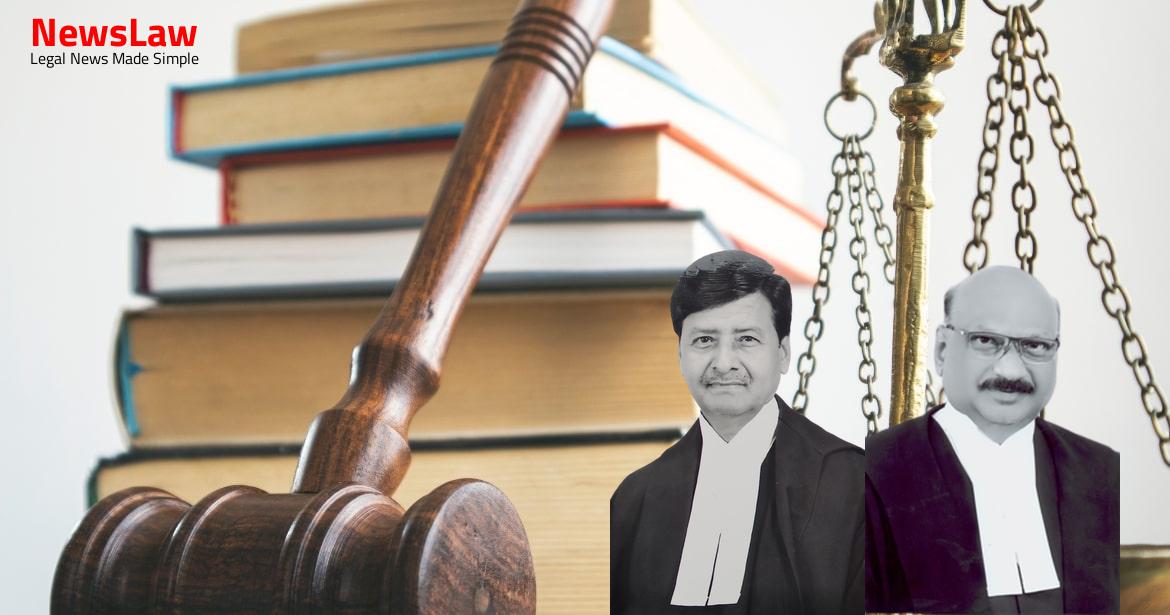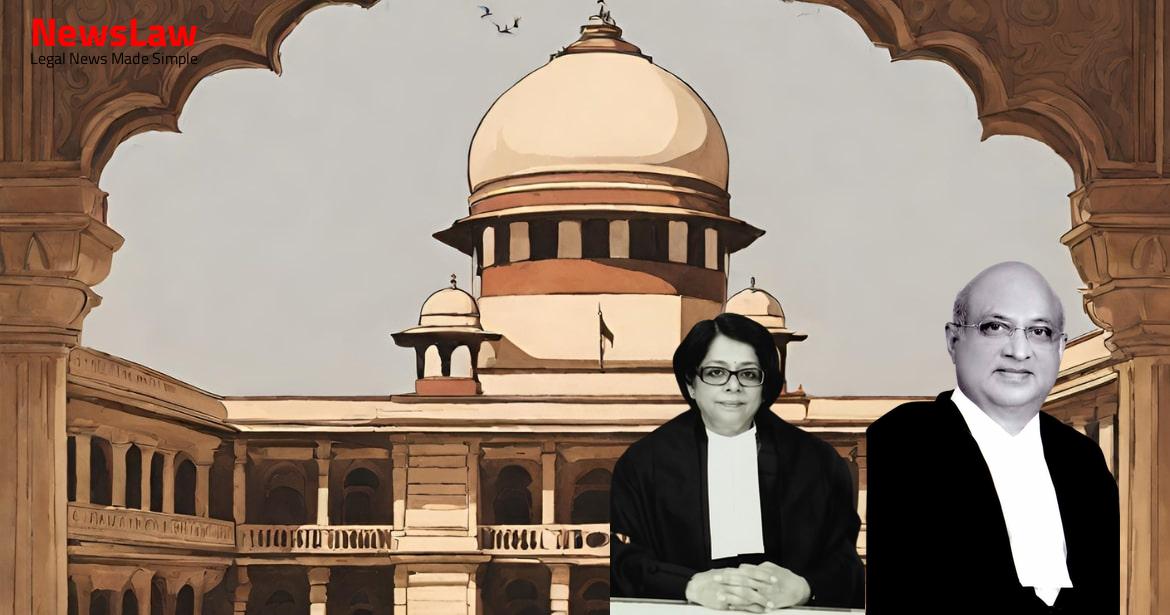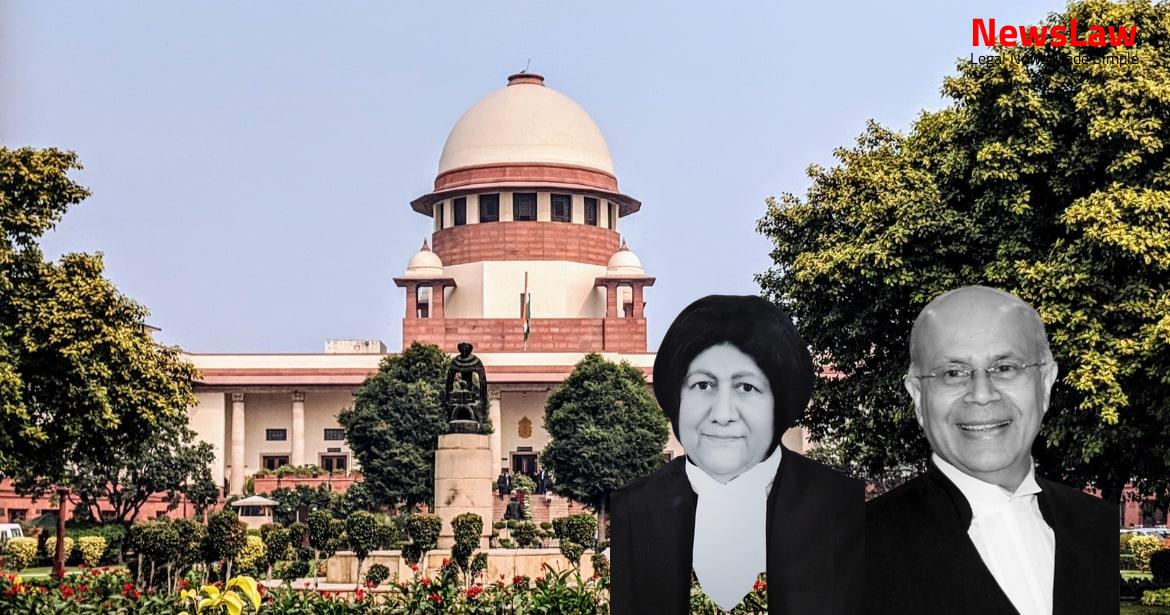In a significant ruling by the Supreme Court, the case regarding the Board selection process has been resolved, maintaining integrity in the process. The judgment impacts the respondents and petitioners involved, shedding light on the importance of fair practices in such crucial examinations. Stay informed about the details of this important legal decision. #SupremeCourt #Integrity #LegalCase #Judgment
Facts
- A decision was taken to cancel the examination due to chances of more malpractices being unearthed.
- Complaint made to the Prime Minister’s Office and Board regarding malpractices in the written examination.
- Discrepancies found in the entries of 109 candidates during certificate verification.
- 196 candidates benefitted from fraudulent alteration of marks.
- Further discrepancies found in the marks of 225 candidates after scrutiny.
- 1058 vacancies notified and 1,70,366 applications received.
- Complaint lodged with the Commissioner of Police, Chennai for various offenses.
- Marks of 196 candidates found manipulated leading to withdrawal of results.
- Scanned images of OMR sheets sent to Agency for evaluation.
- Board issued show cause notice to Agency for explanation of manipulation in answer sheets.
- Mr. Shaik Dawood Nazzar found responsible for manipulation of OMR answer sheets.
- Single Judge convinced of irregularities and corruption in selection process.
- Scanned images of OMR sheets of all candidates uploaded on Board’s website.
- Candidates allowed to download OMR answer sheets and lodge objections.
- Discrepancies found between scanned and original OMR sheets leading to cancellation of written examination.
- OMR sheets scanned in the office of the Board after written examination.
- Division Bench of Madras High Court decided writ appeals in favor of Respondents.
- Judgments in previous cases were cited by Division Bench.
- Learned Single Judge believed in segregating tainted candidates from non-tainted ones.
- Material gathered during investigation pointed to only 196 candidates being involved in malpractices.
- Division Bench ruled that canceling entire selection process was unwarranted.
- Appeal filed against Division Bench’s decision by the aggrieved parties.
- Division Bench faulted Single Judge for not referring the matter to a larger bench.
- Division Bench directed Board to proceed with selections excluding the 196 tainted candidates.
Also Read: Supreme Court Ruling on Dowry Harassment and Suicide Case
Arguments
- A note submitted by the Central Crime Bureau reveals a conspiracy involving multiple individuals in malpractices related to the selection process for Lecturers in Government Polytechnic Colleges.
- The decision to cancel the written examination was made by the Board based on abundant evidence of large-scale malpractices during the exam, including the exchange of large sums of money.
- Some individuals have already been arrested and remanded to judicial custody, while others are currently absconding.
- Efforts are underway to apprehend the absconding individuals, and some have been detained under the Goondas Act in Central Prison, Puzhal.
- The decision to cancel the exam was justified to uphold high standards and integrity, with ongoing investigations as per the submitted note.
- Mr. M. Ajmal Khan and Ms. Nalini Chidambaram, Senior Counsels for the Respondent-Candidates referred to interim orders passed by the Division Bench.
- They argued that the investigation records were summoned and there is no evidence of involvement of candidates other than the 196 found guilty of malpractices.
- They supported the Division Bench’s judgment that segregating the 196 guilty candidates from others is possible.
- They disagreed with canceling the entire selection process based on this segregation.
- Referring to the Inderpreet Singh Kahlon case, they highlighted allegations against the Chairman of the Public Service Commission for manipulating results of candidates.
- Selected candidates were appointed even after the allegations.
Also Read: Case of Technical Equipment Officer Appointment Criteria Dispute
Analysis
- Identifying candidates guilty of malpractice is time-consuming and can be done through criminal prosecution or administrative inquiry.
- Rationality is crucial in public administration as per the Constitution.
- The State has the authority to take measures to maintain the purity of examination processes.
- The purity of examination processes is essential for both academic assessments and employment suitability evaluations.
- Allegations against an individual should not result in the cancellation of the entire selection process without a proper examination of the facts.
- There is a distinction between canceling an examination before selection and terminating the services of appointed individuals.
- Cancellation of examinations is justified when there are allegations of large-scale malpractices
- Board conducted an inquiry and found evidence of tampering with OMR answer sheets benefiting 196 persons
- Further investigation is ongoing with more arrests made, justifying the decision by the Board to cancel the entire examination
- High Court should not interfere with a bona fide decision taken by the Board to ensure selection process integrity
- Proposing identification of wrongdoers before continuing the process would cause inconvenience and loss of time
- Fresh examination process allows all candidates, including innocent ones, to participate
- Serious doubt entertained by the Board about the magnitude of manipulation in the examination should be given due weightage.
- Disapproval of the approach of the learned Single Judge of the Principal Bench of the Madras High Court in taking a different view with another Single Judge of the same Court.
- Matter should be referred to a larger Bench in case of disagreement by a Coordinate Bench of equal strength.
- Setting aside the judgment of the Division Bench of the Madras High Court.
Also Read: Supreme Court Judgement on Transfer of Mining Environmental Clearances
Decision
- Original Name 1’s argument on RPC was found to be valid.
- The RPC was interpreted in favor of Original Name 2.
- The court determined that Original Name 3 did not breach the RPC as alleged.
- Original Name 4’s compliance with the RPC was acknowledged by the court.
Case Title: THE STATE OF TAMIL NADU Vs. A KALAIMANI
Case Number: C.A. No.-006190-006201 / 2019



